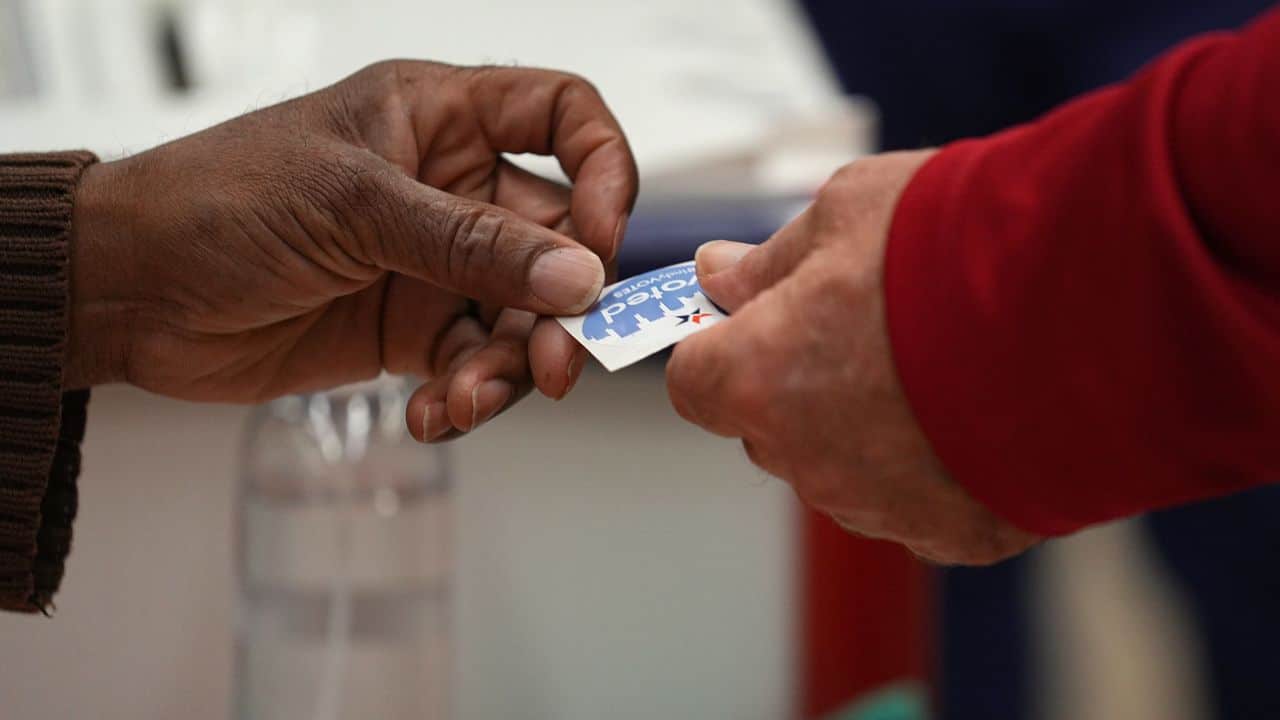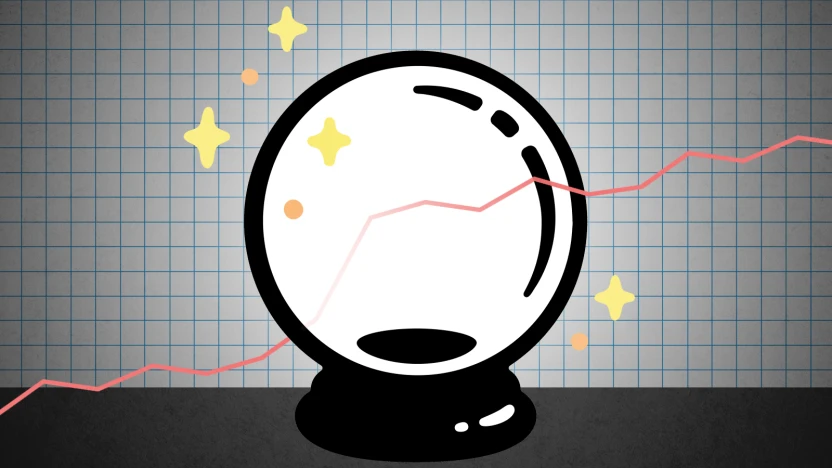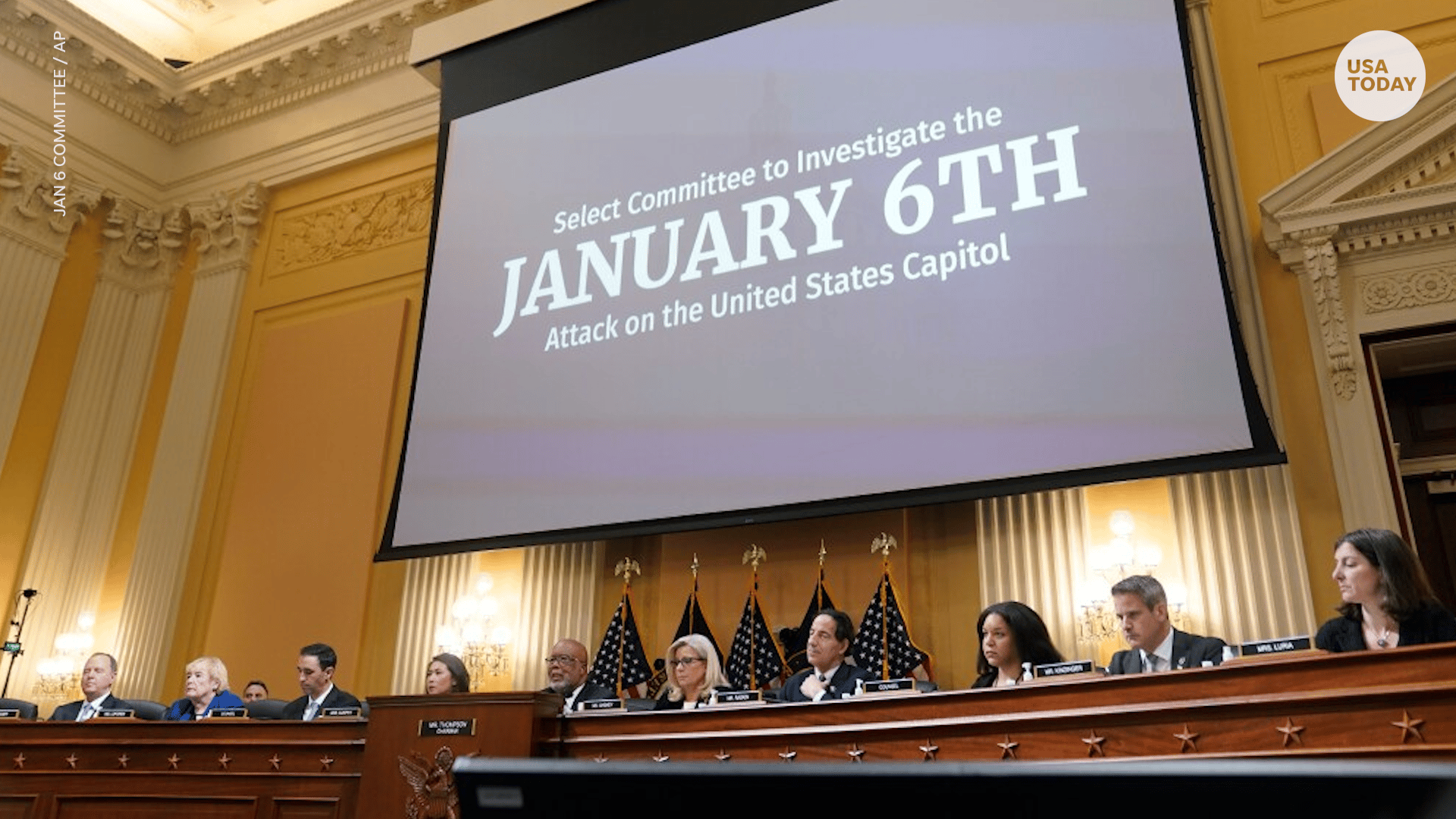Virginia Democrats to hold ‘firehouse’ primary ahead of special House election

Virginia Democrats will choose a nominee on Tuesday for the special election to fill the term of the late Rep. Donald McEachin, who died in November just weeks after winning reelection.
Major California county votes to consider secession

A major California county is considering secession because of growing frustration with the progressive direction the state is heading in, reports The Associated Press. San Bernardino County, the state’s fifth largest with a population of 2.2 million, approved an advisory ballot proposal allowing local officials to look into the option of seceding from the state.
The ballot proposal, known as Measure EE, asked whether the county’s representatives should, “study and advocate for all options to obtain the county’s fair share of state funding, including secession from the State of California.” The possibility of secession was added to the measure by real estate mogul, Jeff Burum, who claimed the state wasn’t doing enough to deal with the increasing population, Newsweek reports.
This would be the first time since 1959 that there was an attempt to create a new state, however, the likelihood of San Bernardino County actually seceding is very low, AP explains. This is because the request would have to be approved by the state legislature and Congress, which are Democratic strongholds.
While the county may not become its own state any time soon, the vote is symbolic of growing political unrest within the country, with the ballot proposal passing by only a thin margin.
“A lot of Californians are unhappy in many ways,” remarked Jack Pitney, a political scientist at Claremont McKenna College. “The vote on secession was like smashing the china. It’s a way of getting attention but in the end, it doesn’t accomplish much.”
Black voter turnout was down in 2022. Democratic operatives are panicking about what it could mean for 2024

An informal group of Black elected officials has lit up over phone calls and texts since Election Day. They’re worried about Black turnout that continues to underperform and talking ideas about how to turn it around before the next presidential election.
COVID-19 is about to explode in China. What that could mean for the United States.

This post was originally published on this siteExperts are predicting COVID cases in China will explode after the country ended its strict zero-COVID policy. Here’s how the US may be affected.
16 weather disasters at $1 billion each. How the US was impacted by weather in 2022.

This post was originally published on this siteTornadoes and Winter storms show 2022 weather isn’t ready to quiet down just yet despite 16 disasters that have cost over $1 billion each.
When will inflation end? Forecasts for 2023.

New year, new inflation rates? For many Americans enduring higher prices, that’s likely something on the wishlist for 2023. In November 2022, inflation did ease to 7.1 percent, down from 7.7 percent in October. It was the fifth month in a row that inflation rates have dropped. The annual rate is still steep, but things appear to be moving in the right direction. The question now is whether that will continue through 2023. Signs are pointing to yes, but there are a lot of factors at play. Here’s a look ahead.
Where are inflation rates expected to go in 2023?
It depends on who you ask — and what the future holds.
Kiplinger predicted that “the slowing economy is likely to bring the yearly inflation rate down to 3.2 percent by the end of 2023.” Preston Caldwell, head of U.S. economics at Morningstar, told TIME’s NextAdvisor that “we expect inflation to undershoot 2 percent in 2023 and 2024,” as sources of the current high rate recede and monetary policy tightens.
Meanwhile, NextAdvisor explained that there’s “no clear answer among economists” to the question of whether peak inflation in the U.S. has passed. Though there are promising signs — such as price declines in sectors like used cars, gas, and apparel — there are a number of factors at play in determining the future inflation rate, including Fed decisions on interest rate hikes, the strength of the U.S. dollar, and developments in the war in Ukraine. All of this to say, other experts contend that it could be two to three years before we see inflation truly come down.
Are high prices on their way out?
No, probably not. NextAdvisor put it succinctly: “Economists and financial experts agree on one thing: Higher prices will likely last well into next year, if not longer.”
However, we might start to see light at the end of the tunnel as supply chains adapt and supply and demand reach a better balance, alongside further action from the Federal Reserve.
What’s the Fed likely to do next?
The latest inflation data seems to have prompted the Federal Reserve to back off a bit on its interest rate hikes. On December 15 it raised its benchmark short-term interest rate by 0.5 percent, following four straight 0.75 percent hikes.
Even though wage increases are slowing, they still remain high. This could lead businesses to keep increasing prices in an effort to maintain profit margins, further fueling inflation.
So it’s likely there are more interest rate hikes to come. Fed Chair Jerome Powell indicated the central bank would keep raising rates but probably slow its increases further at its next meeting at the end of January 2023. NextAdvisor explained that “[e]xperts say that we’ll need more than one month of lower-than-expected inflation numbers” before the Fed can stop putting up rates.
Should we be worried about a recession?
Many experts are sounding the alarm. A Reuters poll of economists published in early December 2022 suggested that there is a 60 percent chance of a recession in 2023, with a slowdown in U.S. economic growth expected.
Treasury Secretary Janet Yellen has stated that there is a “[t]here’s a risk of a recession,” as has JPMorgan CEO Jamie Dimon, who warned that a “mild to hard recession” is possible. That sentiment was also echoed by Doug Duncan, senior vice president and chief economist at Fannie Mae. “The economy continues to slide toward a modest recession, which we anticipate will begin in the new year, with housing leading the slowdown,” said Duncan.
For those who prefer a glass half-full approach, there are some experts with a rosier outlook. The Conference Board CEO Steve Odland told CNBC he thinks any possible downturn will be mild. And in an even more optimistic view of things, Goldman Sachs says its research indicates the U.S. will “narrowly avoid a recession.” Its economists forecast that the chance of a recession in the next year is just 35 percent.
Republican voters are flocking to Ron DeSantis — but why?

With the 2022 midterm elections only weeks behind us, pundits and pollsters have already begun projecting their powers of prognostication forward to 2024 and the upcoming presidential race that will inevitably be dubbed the “most important election of our lifetime” like so many before. But as the full effect of November’s midterms comes into sharper relief, the drumbeat of one emerging narrative has echoed particularly loudly: that of Gov. Ron DeSantis (R-Fla.) and the potential threat he poses to former President Donald Trump, should the pair go head-to-head for the GOP presidential nomination.
While he’s unquestionably enjoying a post-midterm high of good press and even better polling numbers, what’s more open to debate is just why Republican voters are seemingly so enamored with DeSantis to begin with. Having only just won a second term as governor in November, what exactly has the Floridian accomplished since first being elected to statewide office just four years ago — and how have those accomplishments helped fuel his meteoric rise within the GOP? Here’s everything you need to know:
What issues are resonating with Republican voters?
Put plainly: Culture War issues. To the extent that DeSantis has made a national reputation for himself, it’s been largely by placing himself at the forefront of animating conservative bugbears such as COVID-19 mitigation techniques, LGBTQ equality, and expanded voting rights — all of which he has come out strongly against, to the delight of conservatives reveling in his wholesale embrace of such fraught positions.
“You can agree or disagree with DeSantis and the Florida legislature on any of these moves, measures, and proclamations,” The Hill opinion columnist Joe Concha wrote back in March of this year. “What makes the governor popular among his supporters is that he doesn’t appear to give a damn about what the Florida press or the national political media think about how he’s leading his state. He has a plan and principles that appear to be unwavering.”
In an essay for the Herald Tribune published nearly a full year before Concha’s piece, Tampa Bay Young Republicans president Jake Hoffman offered a similar assessment of DeSantis’ popularity. “While pandemic policies have obviously taken priority over all else, the truth is that DeSantis’ approval ratings were extremely high even before the coronavirus arrived,” Hoffman asserted. “He was popular because he stood up to the cancel-culture media — and because he wasn’t afraid to buck the establishment, even when that establishment included his own party and predecessor.”
The appeal, then, is part of a broader conservative appetite for candidates willing to not simply wade into culture war issues, but to do so with an enthusiastically pugilistic flair. Just as Republicans gravitated toward Trump for being a “fighter,” so too is DeSantis’ reputation as a bulwark against a liberal/Democratic/leftist/socialist agenda helping power his ascendent position within the party.
What has he actually delivered for Republicans?
As governor, DeSantis has notched some significant political victories for conservatives in his state; high-profile legislation like his popularly dubbed “Don’t Say Gay” bill not only had an impact on millions of state residents but also established a template for other conservative culture warriors to follow in terms of both tactics and rhetoric. A May 2021 analysis for the Tampa Bay Times highlighted other legislative victories from DeSantis’ first term — among them, bans on transgender athletes competing in women’s sports, crackdowns on mail-in voting, and penalizing social media companies for certain policies — all of which, the paper concluded “were the end cap to a carefully crafted legislative agenda aimed less at the needs of the governor’s home state and more at the national Republican base.”
Even DeSantis’ forays into the ongoing debate over immigration (an issue with which his state has a unique and considerable history) seem conspicuously plotted with an eye toward a national audience. While immigration itself was a major factor in the minds of Florida voters during the 2022 midterms, DeSantis’ most high-profile engagement thereof was his potentially criminal effort to send two plane-fulls of undocumented asylum seekers from Texas to Martha’s Vineyard under dubious promises of jobs and resources upon their arrival.
While DeSantis wasn’t the first conservative governor to relocate groups of migrants to ostensibly “blue” states, his Martha’s Vineyard ploy nevertheless vaulted him into the center of the national immigration debate by virtue of its sheer brazenness — even as it removed him from the more immediate immigration issues relevant to Floridians themselves. As Vox put it in September, “The scheme is [Texas Republican Gov. Greg] Abbott’s brainchild and one that Arizona Gov. Doug Ducey has replicated, but DeSantis has been the one in the headlines for it lately. That’s by his design. He’s currently locked in a competitive race for re-election with his Democratic opponent, former Florida Gov. Charlie Crist, and has used the stunt to try to revive border security as a major issue in the midterms.”
To the extent that DeSantis’s re-election win in November could be seen as a vote of confidence for him from his state’s erstwhile swing-state electorate, even it has since been framed within the broader context of national GOP politics, with the conservative Washington Examiner exclaiming, “Florida stands alone for incredible Republican results,” and The Washinton Post calling it “a blowout victory that was an affirmation of his appeal to the voters who have turned Florida into a haven for conservatives.”
So does that mean he’s a sure thing against Trump?
Not at all. While DeSantis has begun regularly polling ahead of Trump in one-on-one matchups between the two, his popularity is in no small part a byproduct of Trump’s legal and personal struggles since Election Day. As the sole declared candidate in the 2024 election so far, the race for the GOP nomination is as much Trump’s to lose as it is DeSantis’ to win. And should other Republicans throw their hats in, it would likely be only to Trump’s benefit given the relative stability of his core base of voters, which hovers at around 30 percent of the party. As was the case in the 2016 election, given a crowded field, Trump has the advantage of being able to pick off challengers one by one, growing his share of primary voters over time. Despite his recent deluge of poor polling and personal setbacks, there’s little reason to suspect that his ironclad grip over a large enough bloc of MAGA faithful wouldn’t itself be enough to buoy him through a crowded campaign season in which other candidates would see their share of the electorate distilled with each additional person who declares.
Crucially, neither Trump nor DeSantis have made any major campaign moves since the midterms, with many in the GOP wondering why the Trump team hasn’t ramped things up, even as they also wonder why DeSantis hasn’t officially declared his intent to run in the first place. To wit, DeSantis’ most public post-midterm moves have been casting off allegations of a feud with the former president, and more recently announcing plans to impanel a statewide grand jury to investigate criminal charges against COVID-19 vaccine manufacturers — an effort that seems to fit in his larger pattern of making political moves with an eye toward the national conservative electorate.
For the time being, then, DeSantis can enjoy the growing attention and respect his carefully crafted positioning has earned him. Whether he manages to actually differentiate himself from Trump once the 2024 campaigns get started in earnest remains to be seen. Republicans have long cast about for a “Trump-slaying” candidate who can embody the former president’s conservatism while freeing the party of his personal baggage. To date, those Trump-slayers have proven to be wishful thinking on the part of the GOP. If he does run, it would be up to DeSantis himself to break that mold.
November Retail Sales Report to Show Holiday Spending Trends
This post was originally published on this siteThe measure of spending at stores, online and in restaurants will show whether shoppers benefited from easing inflation.
The final Jan. 6 hearing is Monday: What we learned from all 9 hearings this year

This post was originally published on this siteThe next Jan. 6 hearing is Monday. In nine hearings this year, the committee investigating the attack mapped out Trump’s efforts to cling to power.
Biden administration prepares for surge of migrants ahead of the forced end of a Trump-era border policy

As administration officials considered a border proposal reminiscent of the Trump era this month, Senate Majority Leader Chuck Schumer called Ron Klain, President Joe Biden’s chief of staff, with concerns, according to three sources with knowledge of the call.
Tagged ImmigrationmigrantsTitle 42US-Mexico border